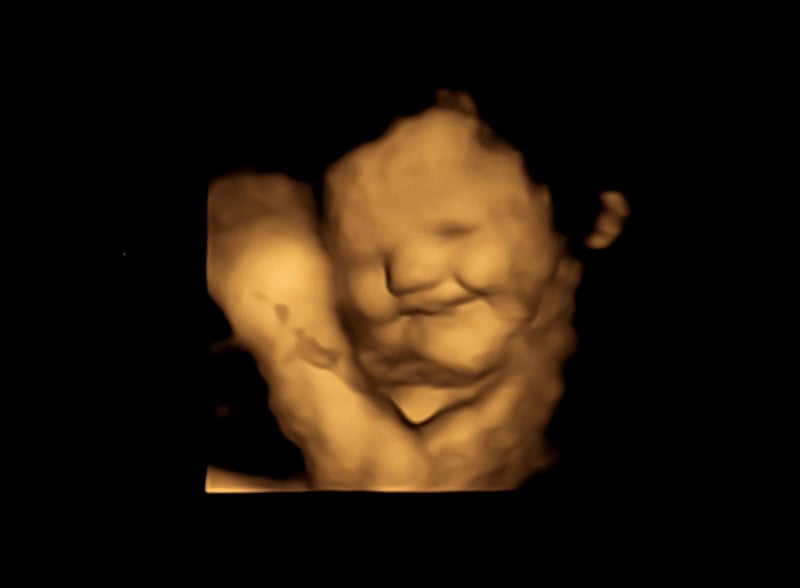Get Healthy!

- Cara Murez
- Posted September 22, 2022
First Good Evidence That Babies React to Taste, Smell in Womb
At the kitchen table, babies trying different foods might look eager or offended, depending on the flavor of what they are asked to eat.
It turns out infants may develop those taste differences while still in the womb, according to a new study that delivered the first direct evidence that infants can smell and taste while in utero.
In the study, researchers fed 100 pregnant women a single capsule containing approximately 400 milligrams (mg) of carrot or 400 mg of kale powder. The women were asked not to consume any food or flavored drinks for about an hour before a 4D ultrasound scan.
Twenty minutes after the moms ate the carrot or kale capsules, researchers from Durham University's Fetal and Neonatal Research Lab in the United Kingdom took the scans, watching the fetuses' facial expressions.
Babies whose moms had consumed carrot showed more "laughter face"responses, while those who had tasted kale through their moms showed more "cry face"responses, the study authors said in a university news release.
"It was really amazing to see unborn babies' reaction to kale or carrot flavors during the scans and share those moments with their parents,"said lead researcher Beyza Ustun, a postgraduate researcher in the Fetal and Neonatal Research Lab at Durham.
The babies' facial reactions were compared to a control group who were not exposed to either flavor.
"Looking at fetuses' facial reactions, we can assume that a range of chemical stimuli pass through maternal diet into the fetal environment,"said study co-author Benoist Schaal, of the National Centre for Scientific Research-University of Burgundy, France. "This could have important implications for our understanding of the development of our taste and smell receptors, and related perception and memory."
It is believed that fetuses taste and smell through inhaling and swallowing amniotic fluid.
This research could lead to a future in which what pregnant women eat might influence babies' taste preferences after they're born. This could potentially help with establishing healthy eating habits, according to the researchers.
"As a result, we think that this repeated exposure to flavors before birth could help to establish food preferences post-birth, which could be important when thinking about messaging around healthy eating and the potential for avoiding 'food-fussiness' when weaning,"Ustun said, noting that past studies suggesting babies can taste and smell in the womb have been based on post-birth outcomes.
The moms in the study had scans at both 32 weeks and 36 weeks of pregnancy.
"Previous research conducted in my lab has suggested that 4D ultrasound scans are a way of monitoring fetal reactions to understand how they respond to maternal health behaviors such as smoking, and their mental health including stress, depression and anxiety,"said study co-author Nadja Reissland, head of the Fetal and Neonatal Research Lab.
"This latest study could have important implications for understanding the earliest evidence for fetal abilities to sense and discriminate different flavors and smells from the foods ingested by their mothers,"Reissland added.
The researchers are now studying the same babies post-birth to see if the flavors they experienced in the womb affects their acceptance of different foods.
"It could be argued that repeated prenatal flavor exposures may lead to preferences for those flavors experienced postnatally. In other words, exposing the fetus to less 'liked' flavors, such as kale, might mean they get used to those flavors in utero,"said study co-author Jackie Blissett, of Aston University, in Birmingham, England. "The next step is to examine whether fetuses show less 'negative' responses to these flavors over time, resulting in greater acceptance of those flavors when babies first taste them outside of the womb."
The findings were published Sept. 21 in the journal Psychological Science.
More information
The American Academy of Pediatrics has more on newborn baby behavior, including tasting.





